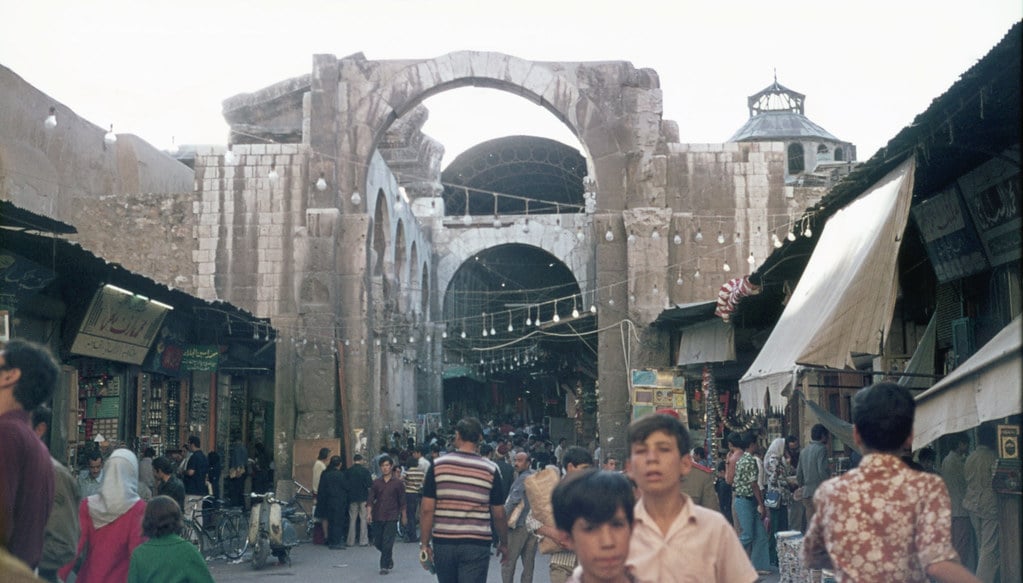Report
Syrian government claims ‘zero cases’ but no one believes them
With fighters and flights still coming into Syria from Iran and elsewhere, there's little chance the government's claim of zero coronavirus cases is true. Sources say they don't want to create a panic.

Syria has been at war for nine years, and it may soon be forced to fight yet another war against the coronavirus—one just as dangerous and lethal to its inhabitants. A very worrying prospect if one takes into account the state of the national health system, seriously weakened and impoverished by the conflict.
However, Damascus continues to deny that there is any presence of the virus in Syria. On Saturday, the Syrian Minister of Health, Nizar Yazigi, said that the tests carried out on a number of suspected cases had been negative, after 16 passengers and crew members from a flight from Iraq had been quarantined. Nevertheless, according to rumors circulating in the capital and reports on social media, there are contagions present in Tartus, Homs, Latakia and Damascus.
Only in recent days has the Syrian government begun to take preventive measures. It has postponed the elections scheduled for April 13 until the end of May and closed schools for two weeks. These measures have prompted thousands of families in the capital and other cities to stockpile basic necessities in expectation of more restrictive measures.
People are hoping it’s true that the coronavirus has remained outside the country, as the government is saying—but this is hard to believe. Especially if one takes into account the presence in Syria of at least 50,000 fighters and military advisors from Iran—the third-worst hotbed of infection in the world—as well as from Afghanistan, Pakistan, Lebanon and Iraq, in support of the government army fighting against the jihadist militias and those from the so-called “Syrian National Army,” paid and trained by Ankara. Flights between Damascus and Tehran have been reduced, but not shut down entirely, and officers and soldiers of the Iranian Revolutionary Guard are continuing their rotation in Syria. Not to mention that until a few weeks ago, there was a continuous flow of Iranian Shiite pilgrims visiting holy places in Syria.
“The authorities fear that announcing positive cases might generate panic and chaos in an already complicated situation, but here everyone is certain of the presence of people infected with coronavirus,” a Syrian source who asked to remain anonymous told us on Tuesday. “What worries us more than anything else is the arrival of thousands of sick people in hospitals who are already unable to cope with the consequences of the war.”
Moreover, the source added, Damascus cannot cut its ties with its ally, Iran, which, together with China, has been delivering supplies to Syria, which has been under an embargo for years. The country is importing 60% of its antibiotics from China, and in recent months, due to the coronavirus, several Chinese manufacturers have halted or reduced deliveries. And the Syrian Ministry of Health is also gravely concerned about India, which is supplying another 30% of its medicine.
Iran, on the other hand, is crucial for providing oil supplies, as well as for financial aid, which, according to some estimates, adds up to around $15 billion a year. This aid might be significantly reduced as a result of the drop in the price of crude oil, which will have a major impact on Tehran’s finances, a country that is already grappling with the difficult task of containing the consequences of the epidemic on its economy, which was already in great distress because of the American sanctions.
The Kurdish autonomous administration has adopted a different approach to the coronavirus emergency. In Rojava, in northeastern Syria, restrictive measures have been adopted, albeit only for the short term: the activities of public institutions, schools and universities have been suspended for four days, and non-residents have been barred from entering the region. Preventive measures were also put into effect by the mercenary forces allied with Ankara in the province of Idlib, outside the control of Damascus and the scene of the recent clashes between Syria and Turkey. In these territories as well, there are no confirmed positive cases of coronavirus.
However, little or nothing is known about the situation in the makeshift camps where hundreds of thousands of civilians displaced from Idlib now live. A few days ago, Jan Egeland, Secretary General of the Norwegian Refugee Council, warned that the spread of the virus in refugee camps—and not only in those with Syrian refugees—will lead to a catastrophe.
Originally published at https://ilmanifesto.it/zero-contagi-in-siria-ma-nessuno-ci-crede/ on 2020-03-18
